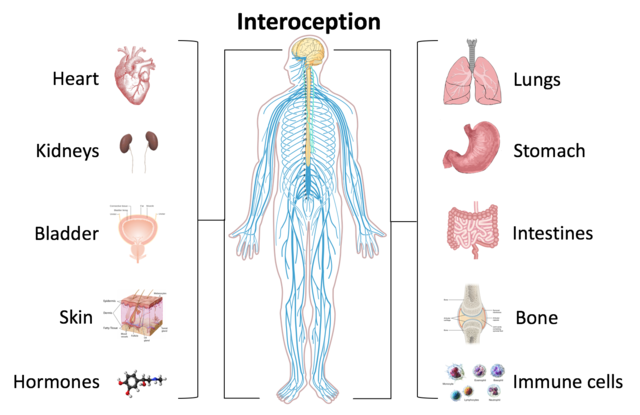Interoception study

Schappelle, CC BY-SA
Interoception describes the signals coming from internal organs such as the heart or gut. This sensory modality has been of interest in various medical and psychiatric research and seems to be highly relevant for FND as well.
The aim of our project is to test the interoceptive performance of FND patients using a variety of tasks and to compare these with those of healthy controls (HC). We will include both traditionally used and newly developed explicit tasks, as well as implicit measures using an electroencephalogram (EEG). The tasks will provide scores that can be interpreted under the Bayesian Brain hypothesis by providing scores for predictive coding and interoceptive precision weighting. We will also assess trait and metacognition as a central component to complete the conceptual model of the Bayesian Brain. Finally, we will also investigate how biological components, such as the neuropeptide oxytocin, may play a key role in the precision weighting of interoceptive signals.
Overall, this study provides a novel approach to the pathophysiology of FND by incorporating concepts from computational neuroscience, biological components and psychosocial risk factors.
